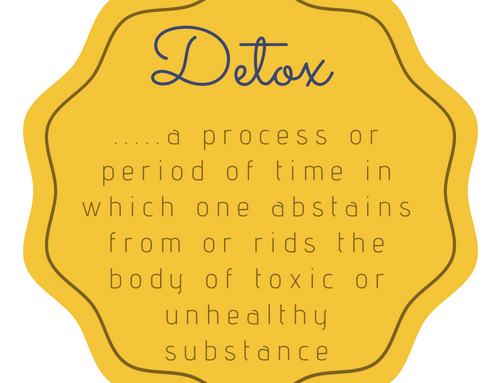5 Ways Your Thyroid is Impacted by Poor Gut Health

Many people think that the thyroid is the root cause of their health issues. This, in fact, is not the case. Poor thyroid health is an indicator that there are deeper issues going on. And it is your job to get to the root cause of it!
Digestion and thyroid health are tightly linked. The digestive symptoms associated with hypothyroidism (underactive thyroid) include constipation and digestive issues due to poor stomach acid production. The digestive symptoms associated with hyperthyroidism (overactive thyroid) include loose stools and diarrhea.
But the connection goes deeper then just symptoms. In this blogpost we are going to do a dive into the 5 ways poor gut health can impact thyroid health.
Before we dive in, I want to highlight how to gauge your thyroid health. Many conventional medical doctors will only look at the TSH values. However, in order to get an accurate picture of the functioning of your thyroid, you need to run a full thyroid panel, including antibodies. These values then need to be compared to optimal values. Your values may be within the ‘conventional’ range, but if they are below (or above) optimal values, you are likely to still have symptoms.
There are many gut infections that have directly implicated with Hashimotos, the autoimmune condition associated with hypothyroidism. These include: blastocystis hominis, Helicobacter pylori (h pylori), yersinia enterocolitica, staphylococcus and streptococcus. There are also systemic infections that have been linked with thyroid health such as borrelia burgdorferi (Lyme),mycoplasma, Q Fever (Coxiella Burnetii), epstein barr (EBV), periodontal disease and several other viruses. The top three infections associated with thyroid health are : EBV, H Pylori and yersinia enterocolitica.
How is it then that infections and gut health contribute to thyroid dysfunction?
Connection #1: Inflammation Impacts Thyroid Hormone Production
When we see inflammation when you are dealing with issues that are chronic and create ongoing inflammation. This is because these infections often initially raises your body’s cortisol on an ongoing basis.. Cortisol is a hormone that responds to stress. When your cortisol is raised, it can then impact your thyroid. High cortisol levels impact TSH levels and they also impact the conversation rate of T4 to T3. So right away we can see that the inflammation causes higher cortisol, which then impacts thyroid hormone production. [How the thyroid gland works is a story for another post entirely, but it is important to know that T4 is the inactive, or storage thyroid hormone, and T3 is the active form of the thyroid hormone, so the amount of T3 you have, will be important for thyroid function).
Connection #2: Leaky Gut Leads to Autoimmune Conditions that Impact the Thyroid
When you have infections in your gut, the infections will do damage to the gut lining. This is because the pathogens are going to cause what’s known as leaky gut. What happens with leaky gut is that the lining of the intestinal tract, which is only one cell deep, becomes damaged, and the tight junctions no longer keep the cell walls together. As a result, food from your gut leaks into your bloodstream and it causes something known as molecular mimicry. This is where something that doesn’t belong in the body looks very similar to something that is part of the body. When the immune system becomes overactive it can accidently attack cells in the thyroid gland (and the rest of the body) instead of attacking the unwanted invader because it mistakenly identifies it as a ‘match’ for the invader’s protein sequence. This is often the case with Yersinia as well as the Lyme Bacteria.
Connection #3: The Bystander Effect
Sometimes these sneaky little viruses will hide out INSIDE of the thyroid. The is the case for EBV for example. When the body mounts a full immune attack, the thyroid can then end up as a causality because the EBV is hiding out in there. This will look like an ‘autoimmune’ attack, when in fact, the body is doing its job of eliminating the foreign invader. Many pathogens are intracellular, meaning they can live inside the cell and reproduce there.
Connection #4: Gut Dysbiosis
As you probably know, when you have bacterial infections, it causes imbalances between good bacteria and bad bacteria. Dysbiosis in the gut impacts the thyroid hormone production because the conversion of T4 to T3, which occurs in the GI tract is dependent upon having health flora in your gut. If you don’t have healthy flora, but instead you have an imbalance of good and bad bacteria, then it’s really going to impact the conversion of T4 to T3, which is going to ultimately affect how much active thyroid hormone is available to your body.
Connection #5: Nutrient Deficiencies
Any pathogens living in your gut are going to be hungry. So, when you are feeding your body, you are actually feeding them as well. These invaders are essentially stealing your nutrients before the body can get them. You need certain kinds of nutrients to have healthy production of thyroid hormones. For example tyrosine is one of the main raw materials to build thyroid hormone, and selenium is the mineral which plays a key role in the enzymatic conversion of T4 to T3. So, if you’re low in those nutrient – whether it’s from a poor diet, or in this case we’re talking about gut bugs eating them, then it’s going to impact the ability of your body to make specific thyroid hormones.
So as you can see, the health of your thyroid is directly connected to the health of your gut, and what is living in it. This is why I always stress the important of making sure you have ruled out, and cleaned out any gut infections!
Looking to learn more? Schedule a free discovery call to find out how you can get a GI MAP and find out what’s living inside of you!.







